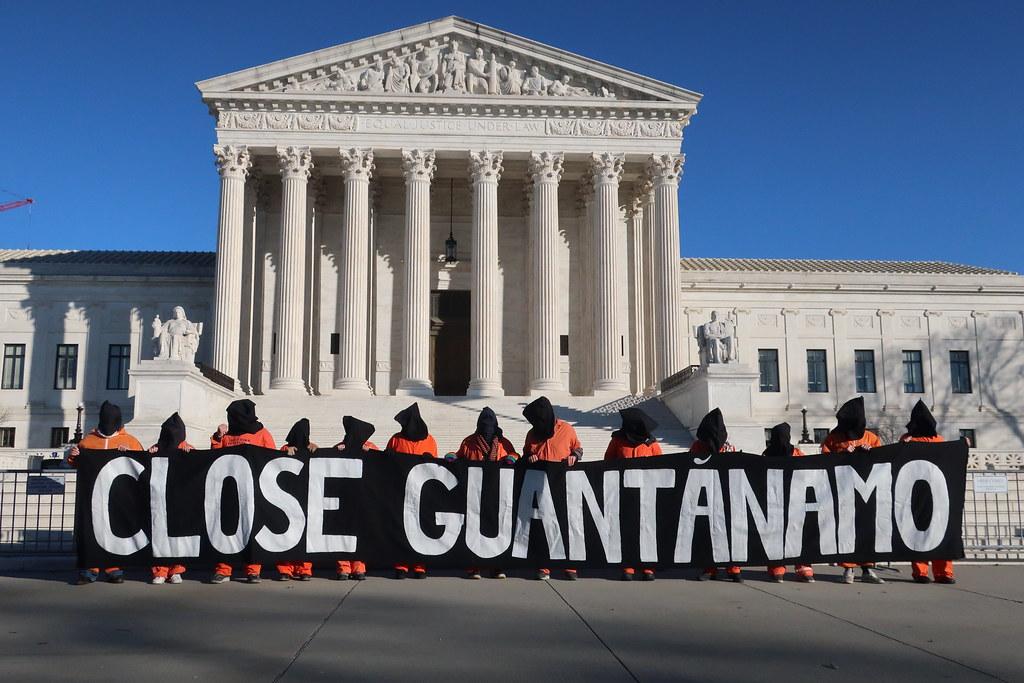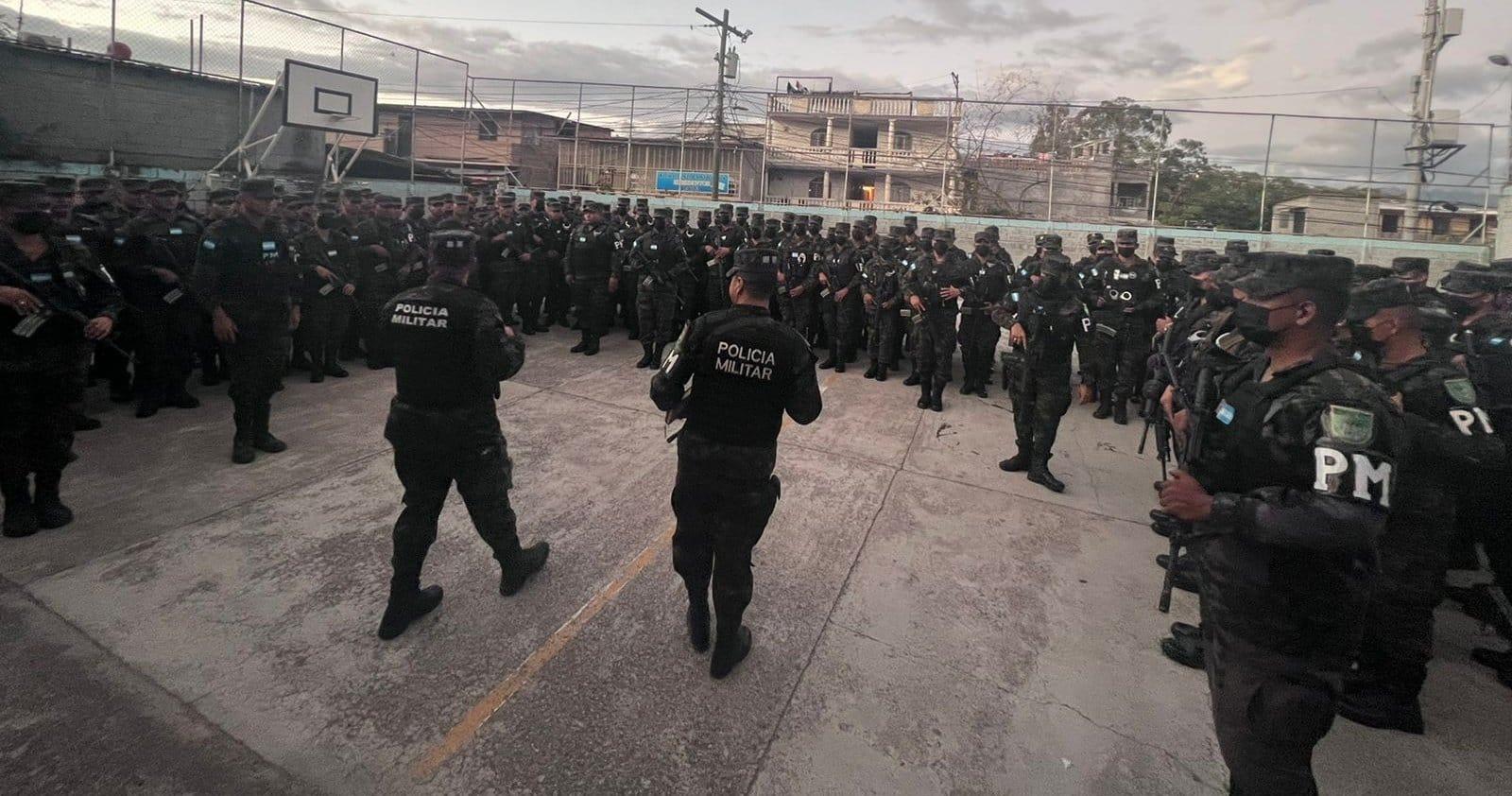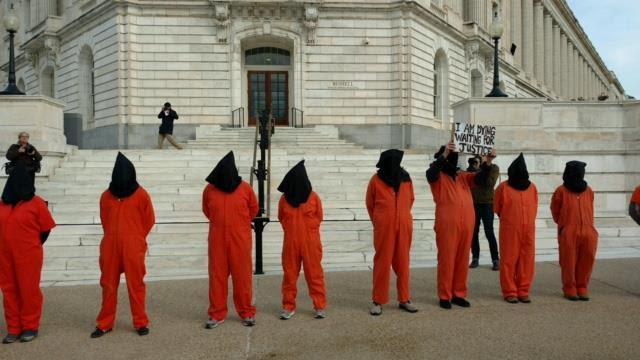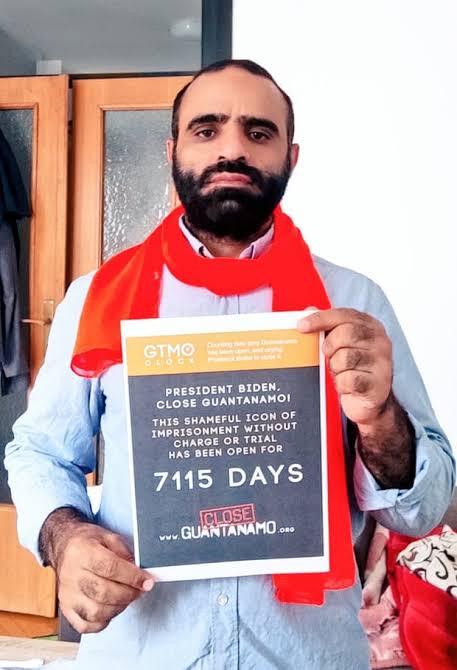Twenty-one years ago, on January 11, 2002 President Bush opened the torture facility Guantánamo. Since then approximately 779 individuals have passed through the prison and nine lives were lost, seven of which were by suicide. Today the United States government still holds 35 men hostage, 20 of whom have already been cleared for release. Barely any of the 779 people have ever been charged with a crime let alone convicted. In 2022 the Biden administration has released one(!) person, 75 year-old "forever prisoner" Saifullah Paracha, who was detained in 2003.
To protest this injustice, 35 activists in orange jumpsuits and black hoods gathered in front of the White House to remember its victims. The protest was accompanied by a number of speeches. First was Herb Geraghty, organizer for Witness Against Torture and activist. In his opening remarks he defined Guantánamo as the representation of "the worst of this country’s xenophobia" and called on President Biden to keep his promise and shut down Guantánamo Bay Prison. Following Herb, Dr. Maha Hilal, an expert on institutionalized Islamophobia and co-director of Justice for Muslims Collective, held a powerful speech, stating that Guantánamo's existence “…has institutionalized Islamophobia...that in turn has been used to…demonize, criminalize and to justify state violence against Muslims." The third speech was by James Yee, a former U.S. Army prison chaplain to detainees at Guantánamo, who after speaking out against the crimes committed by the U.S. in the facility, was arrested and held in solitary confinement for 76 days while being falsely accused of aiding the “terrorist enemy.” He talked about his first hand insight into the prison's daily abuse and his own experience of being framed and criminalized as a terrorist. After a reading of the 35 names of the men still imprisoned in Guantánamo, Imam Saffet A. Catovic offered a final prayer in which he called for justice to be done here in the U.S. and throughout the world while referring to Guantánamo.
After the White House gathering, a small group of activists marched to the Washington Post headquarters to promote coverage on the ongoing injustice in Guantánamo. The group was met with security guards who denied them access to the building and asked the activists to step back on the sidewalk and off their private property. There was no interest by the editors to hear or be informed about the issue. Evidently, the publication’s masthead motto, “Democracy Dies in Darkness,” has not been conveyed to the security and journalistic personnel.
A summary of the entire three day action by Wittness Against Torture, will be up on the website soon.




